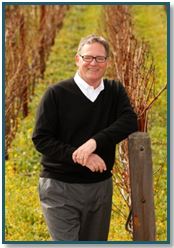Michael and France offered several key insights on their business practices. Here are six valuable takeaways from Alan’s conversation with Opus One’s leadership team.
1. Good management is what keeps a company successful.
Michael Silacci is a great example of strong leadership, an essential quality Riverview believes sets the tone for a company and its culture. With a calm demeanor and no hint of pretense, Michael explains: “I don’t believe in a pyramid but rather a flat management structure. You must be careful with this approach; at times you can smother people.”
2. Hire the right people.
Michael emphasizes the importance of having the right people on your team to prosper. “I try not to manage people; I hire the right people and manage ideas. Hiring the correct person for the team is where you make very important decisions. If you really want to know about a company or management team, watch their entire interviewing and hiring process. This will tell many things. We are fortunate at Opus, we don’t need to seek out people to work here. We have a steady flow of inquiries and a network within the industry.”
When hiring new people, Michael looks for talents that complement the rest of the team. “One of my beliefs is when you are evaluating people, create a circle of complementing talents. For example, if I am weak in one area but strong on another I will hire to complement that weakness attempting to build a team that complements each other.”
It’s a heavy responsibility to make one premium Bordeaux per year for all to judge, with no second chances. Michael says, “The owners of Opus, Chateau Mouton Rothschild and Mondavi, and now Constellation Brands have allowed me to bring together a team that is dedicated and focused on one thing: making Opus One wine. This ensures a holistic connection between the field, viticulture and the wine making process. This does not reduce the responsibility, but when you are putting forward one product it is a tremendous asset to have picked your team members.”
3. Teamwork enhances efficiency and company culture.
Michael then explains an interesting exercise performed at Opus One. “When it comes time at Opus to pick and make our wine, I like to build small teams of three. The teams are diversified, for example, you might have a person from the administration office, distribution like France, and a field pruner, all work together. We will give the teams the power to make the decisions for two tons of wine. They will have control over this batch of wine, it is interesting to watch the pride the team takes in making, blending and preparing the wine for our blind tasting. We include their work in our blind tasting, they actually have a chance to be part of that year’s vintage of Opus One.”


